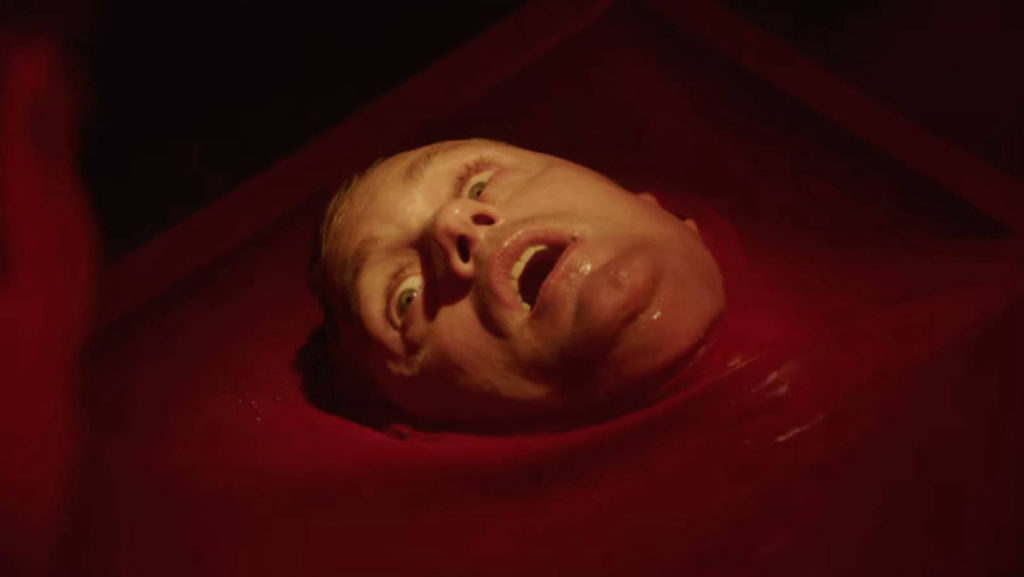If one thing is clear after watching director Brandon Cronenberg’s newest feature film, it is that he, like his father David Cronenberg, has a strong desire to make the audience as uncomfortable as possible through the use of shocking imagery and body horror. Still, visually speaking, he has been able to create his own unique voice that differs from the legendary work of his father. He showcased a lot of his cunning visual prowess in his last film, “Possessor” (2020), a film with a semi-thin plot and thematic elements that felt half-baked but still displayed a massive amount of potential. Sadly, it seems this potential was mostly wasted on his newest film, “Infinity Pool.”
Going to the theater and supporting an independent film like “Infinity Pool” is always a rewarding experience because Brandon Cronenberg is definitely a director with a strong voice, and it is always great to see a movie with a fresh and original vision. The film follows a novelist named James Foster (Alexander Skarsgård) and his wealthy wife Em (Cleopatra Coleman) as they spend their summer vacation at an island resort. This island is run by a corrupt government and is riddled with crime, which means that none of the tourists are allowed off the resort. It is not until they meet another couple, Gabi (Mia Goth) and Alban (Jalil Lespert), that they decide to spend the day off the resort. This is when disaster strikes and the vacation begins to spiral out of control, leading to a high-concept cloning machine, a group of crime-hungry tourists and a drug-fueled orgy sequence.
The first half of the film sets up interesting sci-fi concepts relating to cloning and executes some great horror sequences. Specifically, the scene where James first goes into the cloning machine was done masterfully; as he steps into a pool of red goo, his mind begins to warp and the scene quickly turns into a hallucinatory nightmare that is impossible to look away from. There is also the film’s striking score, which was done by Canadian sound artist Tim Hecker, that fits the mood of the film very well. After the shocking cloning element is revealed, the film really could have gone anywhere, but this is the point where the film began to lose its momentum.
Seeing James’ descent into the depravity and crude behavior that is relayed from the extremely wealthy group of tourists should have been handled more carefully, as it would have led to a more rewarding conclusion. Instead, most of the runtime of the film is spent watching wealthy people engage in reckless behavior while avoiding any repercussions. The satirical portrait of the opulent lifestyle of the upper class has been a pretty common theme as of late (with “Triangle of Sadness” and “Glass Onion” being prime examples) and “Infinity Pool” takes a pretty surface-level approach to this topic. The film often uses its grotesque imagery as a way to mask its lack of narrative depth. This would not have been as big of an issue if the film was more tonally consistent. Many of the more satirical and comedic moments take away from the stark horror sequences, and vice versa.
There is definitely a lot to appreciate about “Infinity Pool,” even if most of the story feels like a huge wasted opportunity. Still, with his latest film, Brandon Cronenberg shows that he has the potential and the filmmaking chops to make something truly special in the future. Hopefully, with a better and more balanced script, he can build off the ideas that he set up with this film and create something that feels less like a complete mess.




















